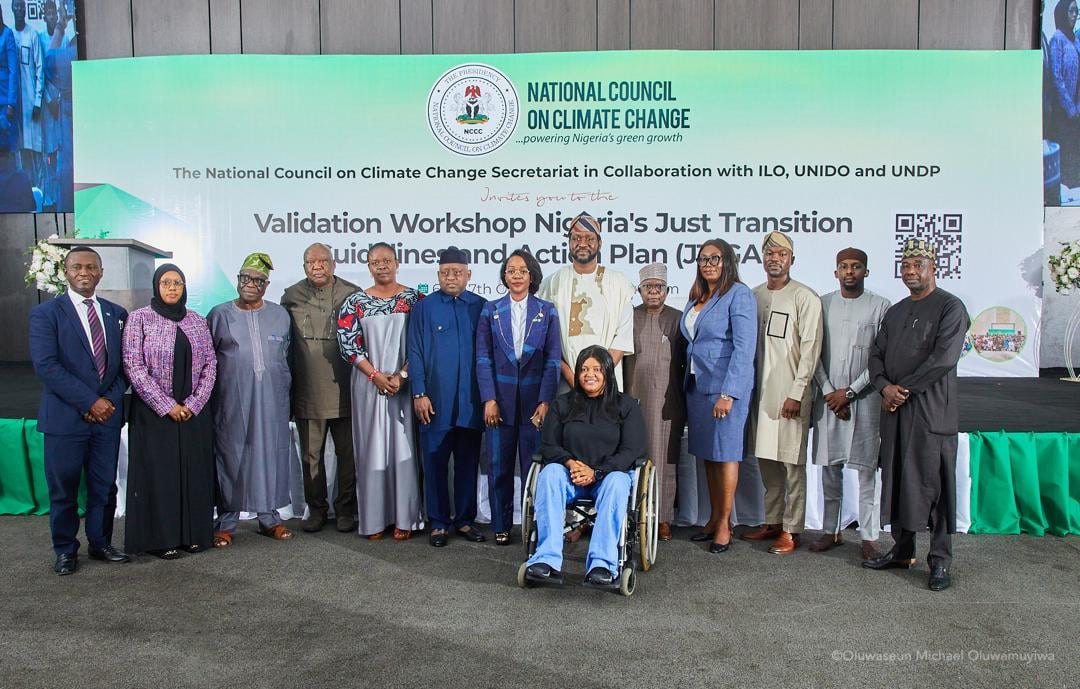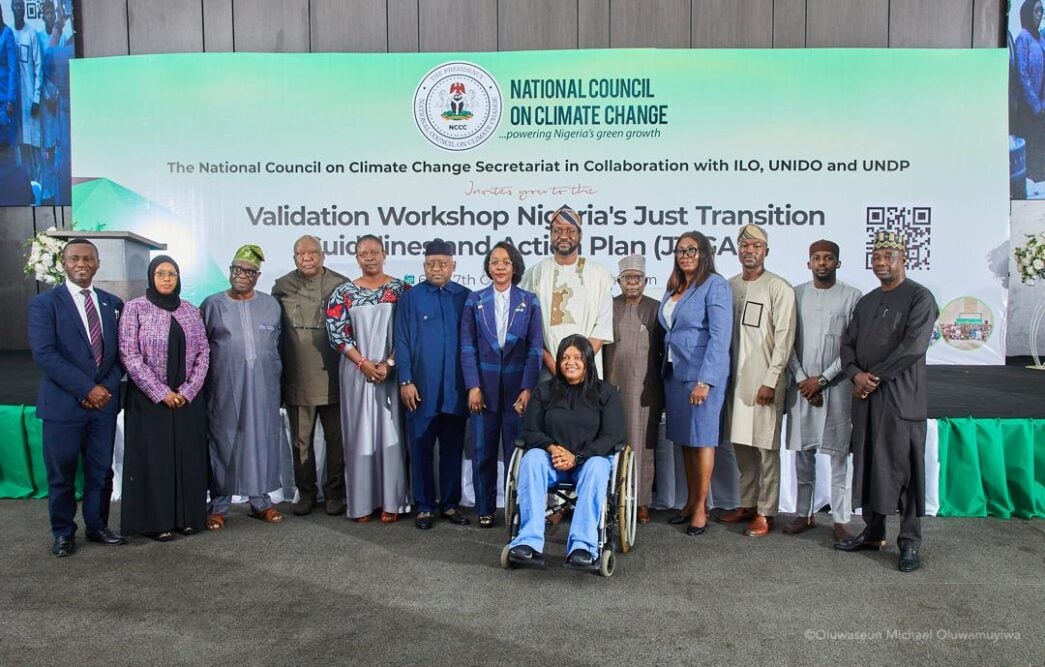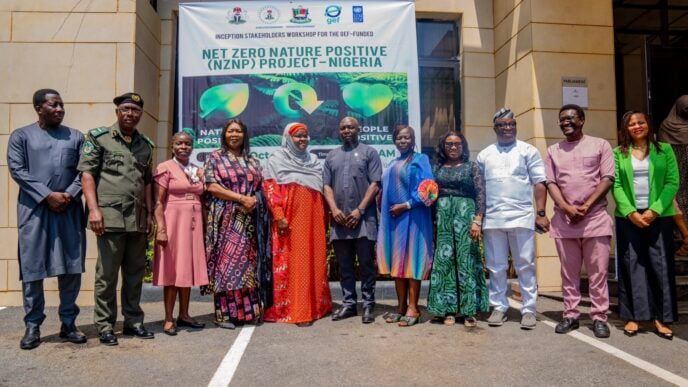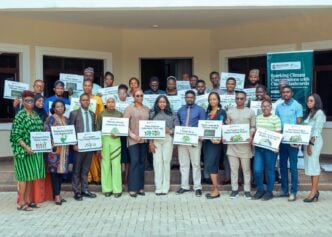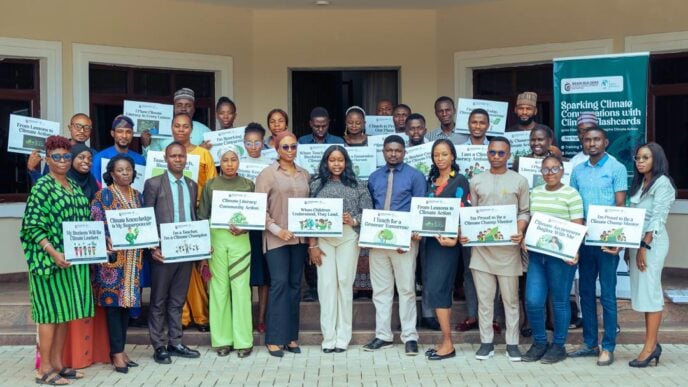The National Council on Climate Change (NCCC) has validate the Just Transition Guidelines and Action Plan (JT-GAP) to support Nigeria’s move toward a low-carbon and climate-resilient economy.
A statement by Chukwumerije Okereke, lead consultant on the JT-GAP, said the validation ceremony, held on October 6 to 7, 2025, at the Nigerian Air Force Conference Centre in Abuja was part of the country’s efforts to ensure an equitable and inclusive energy transition.
Developed by the Centre for Climate Change and Development (CCCD) at Alex Ekwueme Federal University, Ebonyi state, the plan was supported by the International Labour Organisation (ILO), United Nations Development Programme (UNDP) and United Nations Industrial Development Organisation (UNIDO).
The two-day event opened with a technical session where experts from government institutions, academia, and international bodies reviewed and finalised the draft document.
Advertisement
Speaking during the validation, Tenioye Majekodunmi, director-general of the NCCC, described the JT-GAP as “a comprehensive, evidence-based document reflecting Nigeria’s commitment to a fair energy transition”.
She said the plan aligns with Nigeria’s nationally determined contributions (NDCs), energy transition plan (ETP) and net-zero emissions goal.
“The Just Transition is not merely environmental; it is a people-centred vision ensuring economic growth, social justice and sustainability advance together,” Majekodunmi said.
Advertisement
She called on all stakeholders to take ownership of the plan and ensure its effective implementation across sectors.
According to the NCCC, the JT-GAP will serve as a national framework for integrating social equity, decent work, and community well-being into Nigeria’s sustainable low-carbon transition.
Okereke, who led the consulting team, said the JT-GAP provides clear guidance on aligning Nigeria’s climate goals with its broader development priorities.
“Our report shows how Nigeria can unlock green growth and innovation while ensuring climate action does not undermine jobs and livelihoods,” he said.
Advertisement
Okereke added that proper implementation would safeguard workers, women, youth, and vulnerable groups from the adverse effects of transition.
